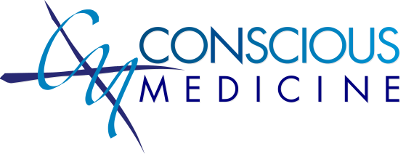We physicians are a stubborn lot.
Much of how we practice is based on the same determinants that underlie, say, our eating choices.
Tradition. Habit. Culture.
The argument that medicine remains a cottage industry, clinging to antiquated methods of practice, is a strong one. It’s the impetus behind evidence-based medicine, which seeks to standardize health care based on peer-reviewed evidence at the “meta” level. In future posts, we’ll discuss the power and pitfalls of evidence-based and personalized medicine. Suffice it to say, doctors make many medical decisions daily based on what the herd has plowed, not necessarily on the results of a meta-analysis.
But entrenched patterns of medical practice extend well beyond best ways to manage chest pain or gastrointestinal bleeding. Our set habits are built into the very ways we communicate with each other.
Take the answering service, for example. Almost every doctor we know utilizes a traditional answering service to handle after-hours phone calls from patients, pharmacies, and hospitals. They pay hundreds of dollars per month for the service. And they bear the frustration of unclear messages, “phone tags,” missed calls, and delayed responses more often than they would like.
Why do they do this? Because that’s just the way everybody has been doing it. No more sophisticated reason than this.
Our father is a long-time cardiologist in private practice. He has carried on with a traditional answering service from the beginning. When I started my own practice eight years ago, I followed his lead and hired his answering service to handle my calls. I confess I do not have his patience (or, fatalism?) in enduring the mishaps that occur with a regular answering service. I’ve since fired, rehired, and fired this answering service again.
Whether out in practice for a long time or a little, we are all creatures of habit. And habits can be hard to break.
Enter Ringadoc, a virtual, cloud-based answering service that allows us to receive secure messages from patients and medical personnel, separate urgent from non-urgent messages, and respond to messages promptly through a direct callback or a recorded message of our own, as the situation warrants. It even enables us to provide phone consultations with patients for a convenience fee. All for at most half the cost of a traditional answering service.
In the middle of my hiring and firing, I tried to rig up something similar to Ringadoc myself a few years ago. It was clunky, obtrusive, and filled with workarounds executable only through my own perhaps deranged machinations.
Our dad would have had a heart attack in trying to use my system.
But patients loved it. I learned from the experiment that patients actually appreciate leaving messages in their own words, without them being filtered through an operator — as long as they didn’t have to navigate through convoluted phone messaging trees and weren’t left directionless about what to do.
While our dad wouldn’t know a smartphone from a dumb one, he taught us by strong example the power of connecting with patients. Connection is the lifeblood of the patient-doctor relationship and the heart of Conscious Medicine.
Patients want to be able to connect with their physicians. Whether involving an answering service or an EHR, patients and physicians would embrace technology in health care that facilitates this connection.
Sadly, many products, services, and policies being introduced in the health care arena are purporting to fix our broken system with technological savvy and innovation. In reality, they become yet more obstructions to the patient-doctor connection that is so vital to the future of medicine.
We welcome more products like Ringadoc, which empowers the connection between patient and practitioner through technology that gets out of our way.
As long as our dad likes it…

Thanks for the kind words Dr. Julapalli! – Ringadoc